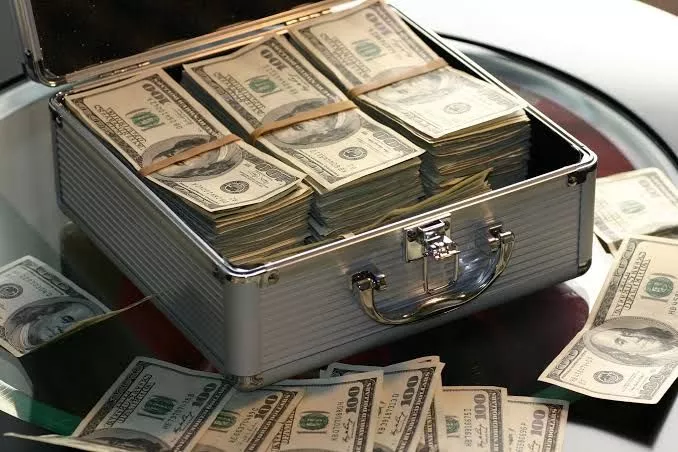
Ever wonder why some people seem to build wealth effortlessly while others struggle to save a dollar? It's not just about how much you earn-it's about how you spend.
The truth is, people who never build wealth often waste money on things they don't actually need, without even realizing it.
If you want to grow your bank account instead of watching your money disappear, it's time to take a closer look at where your cash is going.
Here are seven unnecessary expenses that keep people broke-and how to break the cycle.
1) Eating out frequently
Let's start with one of the most common unnecessary expenses: dining out.
Many people who struggle to build wealth have a habit of frequently eating out. Sure, it's convenient and enjoyable but it's also a financial drain.
Consider this: the average cost of a meal in a restaurant is significantly higher than the cost of preparing a meal at home. Add in drinks, taxes, and tips, and you're looking at quite a hefty bill.
Not only does this habit eat into your potential savings, but it also deprives you of an opportunity to learn a valuable skill - cooking.
By cooking at home, you not only save money but also gain control over what goes into your food. It's a win-win situation!
The wealthy understand this and often opt for home-cooked meals unless it's a special occasion.
2) Buying new when used will do
I used to be one of those people who always bought things brand new. From cars to clothes, I was convinced that new equaled better.
One day, a friend of mine who had successfully built his wealth from the ground up gave me some advice that forever changed my perspective.
He said, "Why buy a brand new car that loses value the minute you drive it off the lot, when you can buy a slightly-used one for a fraction of the cost?"
With this newfound wisdom, I started buying used items where it made sense. I bought a used car which was only a year old and saved thousands. I started shopping at thrift stores and found great quality clothes at a fraction of the price of new ones.
The savings were incredible, and my bank account started to grow. It was a lesson well learned - buying new doesn't always mean better.
Wealthy people understand this principle and are not shy about buying used items when it makes sense. This is an area where those who struggle to build wealth can definitely make some changes.
3) Excessive subscriptions
Subscription services are everywhere these days. From streaming platforms like Netflix and Spotify to monthly beauty boxes, there's a subscription for just about everything.
While these services can provide great value, having too many can quickly add up and drain your finances.
Did you know that the average American spends over $200 a month on subscription services? That's over $2,400 a year!
Wealthy people understand the importance of keeping track of their subscriptions and regularly review them to make sure they are still providing value.
It's easy to forget about that gym membership you haven't used in months or that magazine you no longer read. But these forgotten subscriptions are often the culprits behind unnecessary spending.
Take the time to review your subscriptions and cancel any that are no longer necessary. Your bank account will thank you!
4) Impulsive purchases
We've all been there. You're in a store or browsing online and you see something that catches your eye. Before you know it, you've made an impulsive purchase that you probably didn't need.
Impulsive buying is a surefire way to hinder wealth building. It's a habit that can leave your budget in ruins and your savings account empty.
Wealthy individuals typically avoid impulsive purchases by sticking to a shopping list or by delaying the purchase to see if they really need it.
It's not about depriving yourself of things you want, but rather about making thoughtful decisions about what you spend your money on. By curbing impulsive buying, you can significantly cut down on unnecessary expenses and start building your wealth.
5) High-interest debt
There was a time in my life when I was drowning in credit card debt. The high interest rates were suffocating, and it felt like I was throwing my money into a bottomless pit.
High-interest debt is one of the biggest obstacles to building wealth. It can keep you in a constant cycle of paying off interest without ever touching the principal.
Wealthy individuals understand the dangers of high-interest debt and work tirelessly to avoid it. They prioritize paying off these debts and strive to use credit responsibly.
I learned this the hard way, but once I managed to clear my high-interest debt, my financial life changed dramatically. I was able to save more, invest more, and start building wealth.
Avoid falling into the trap of high-interest debt. If you're already in it, make a plan to get out as soon as possible. It's difficult, but the financial freedom you'll gain is well worth the effort.
6) Expensive habits
Expensive habits can be a significant drain on your finances. This could be anything from a daily cup of gourmet coffee to a smoking habit or even frequently hitting the clubs on weekends.
These habits might seem harmless on the surface, but when you start adding up the costs, you'll see how they can severely impact your financial health.
Wealthy individuals are usually mindful of their habits and their associated costs. They understand that cutting down on expensive habits can free up money that can be used to build wealth.
Evaluate your habits and see if there's anything you could cut down on or substitute with a less expensive alternative. You might be surprised at how much money you could save.
7) Neglecting to invest
One of the biggest mistakes people make is not investing their money. Keeping all your money in a savings account might seem safe, but you're actually missing out on potential growth of your wealth.
Investing can seem intimidating, but it's actually one of the most effective ways to build wealth. It allows your money to work for you and grow over time.
Wealthy individuals understand this and make investing a priority. They know that the earlier they start investing, the more time their money has to grow.
Don't let fear or lack of knowledge keep you from investing. Start small, educate yourself, and watch your wealth grow over time.
















Comments